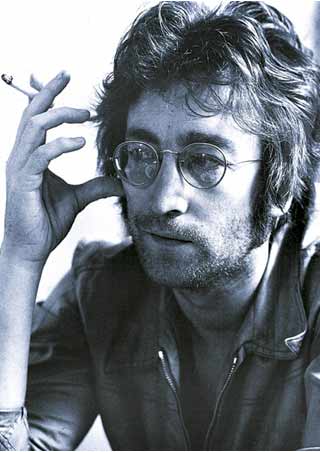
The only exaggeration in John’s description was the part about dinner: “Instant Karma” wasn’t actually released to the public until 13 days after it was written and recorded over the course of a single Tuesday, on January 27, 1970. By any measure, it was one of the fastest pop songs ever to come to market.
“Instant Karma” came during a tumultuous time for John Lennon personally and for the band he was in the midst of leaving behind. The Beatles had spent the better part of 1969 trying to decide whether or not they were still a band, abandoning recording sessions that had just begun and canceling plans for their first live performances in more than three years. The material for both of the band’s last two albums—Abbey Road and Let it Be—was recorded that year, but Let it Be sat unreleased and without an agreed-upon producer. Lennon, meanwhile, was moving in a new direction. “Give Peace a Chance,” recorded during the famous June 1969 “bed-in,” had already come out under the name “The Plastic Ono Band,” as had “Cold Turkey,” his wrenching account of kicking heroin that same year. By January 1970, John had walked away from the Beatles, and the Plastic Ono Band was the only musical entity he considered himself part of.
The January 27 session came about spontaneously. Lennon wrote the song that morning and, as he said, “I knew I had a hit record.”
What got the record finished that same day and gave it its incredible sound, however, was the unexpected appearance of Phil Spector that evening in the EMI studios. After several run-throughs under Spector’s direction.
John said, “Suddenly we went in the room and heard what he’d done to it…it was fantastic. It sounded like there was fifty people playing.” John’s happiness with the results would lead directly to Spector’s taking over the dormant Let it Be project—a development that ended up driving a further wedge between Lennon and McCartney prior to the official breakup of the Beatles.

